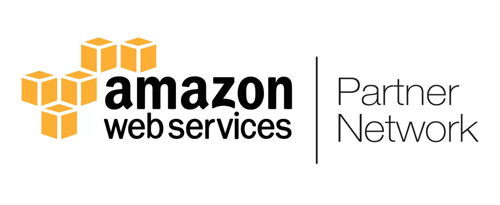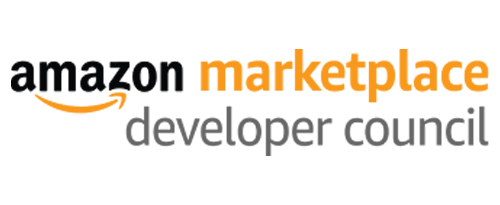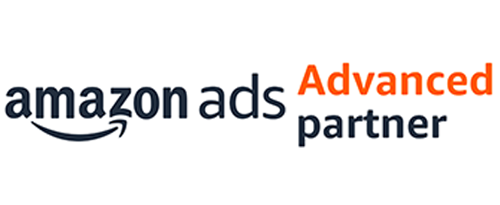This post was contributed by the team at PingPong Global Solutions.
This article covers all the details you’ll need to know for selling internationally:
- International Banking Credentials
- Why you need them, and how to get them
- Foreign Exchange Expectations
- Paying Local Taxes in Foreign Markets
- Out-of-the-box Tips for Additional International Success
When it comes to the growth of your eCommerce business, international expansion is an obvious option to consider. It’s very possible your online product offerings could have the same success to customers in new markets. This can sometimes be effective as-is but can also require some tweaking. Let’s consider what changes might look like.
1. International Online Selling Basics
First things first: you need international banking credentials.
Most countries are going to require some type of local business or personal bank account to operate within their economy – even if it’s on an international online platform.
What are your global banking options?
How do you launch a product in international markets? Well, you gather all the legal documents, hop on a plane, fly to to the country where you want to open up shop, wait around in the lobby of a financial institution, stumble through chatting with a banker in a language you barely know…
OR
You could find a preferred payment method that will help you get the banking credentials (and possibly the credit card) to do business abroad. That way, you can make international sales at the click of a button, and from the comfort of your own home.
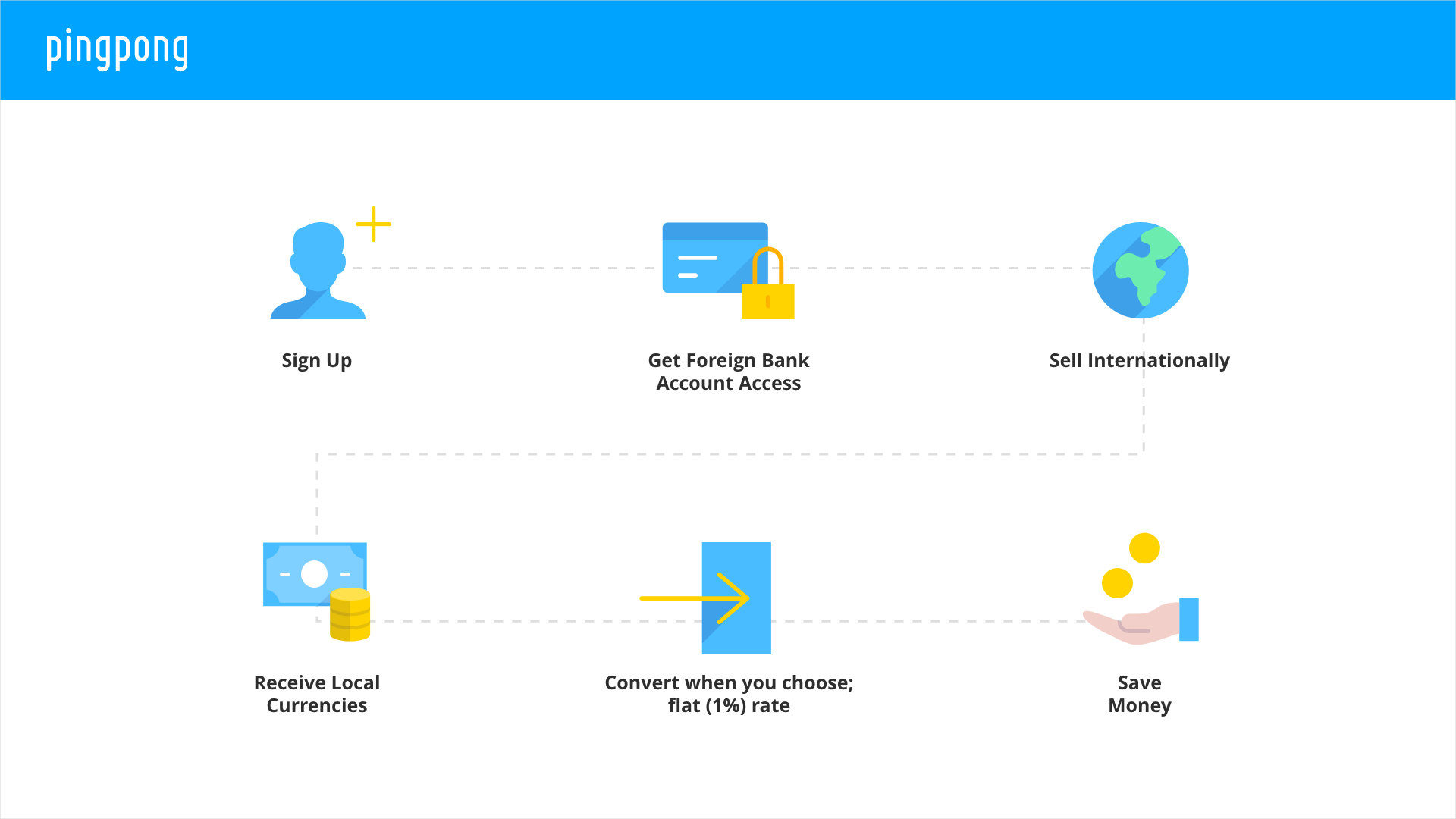
International Banking Credentials
A virtual account eliminates the need to collect business documents and apply for a bank account in a different country, with different laws, that might even speak a foreign first language. Make international online sales while saving time, money, frustration, and preventing potential obstacles that could arise. Win-win.
Whether you’re selling in Europe, the UK, Japan, or elsewhere around the world, your customers want to pay in their domestic currency. A PingPong account and credentials allow you to do international orders in other markets, accept foreign currencies, and convert your profits to your domestic currency at the best rate possible.
With Global eCommerce Sales, The Money Matters
Foreign Exchange (FX)
With a payment solution platform, you control the profits of cross border shopping. You can optimize logistics and save more money when it comes to paying suppliers and/or local taxes. When the time comes to withdraw your money, you get to be confident knowing you are truly getting the most out of the global clients you’ve worked so hard to earn, with the best rates in the business, if you so choose.
Most international marketplaces aren’t working with your best interest in mind when it comes to foreign exchange rates. Generally, conversions for international buyers occur on a scheduled basis, bi-weekly or monthly. However, some payment solution platforms allow you to choose when you withdraw your money.
Why is this awesome? Because you can wait for the best conversion rate, and choose to withdraw when that rate hits and save even more money than you would when utilizing a traditional marketplace model. Imagine the additional profits you’ll be making when you have the power to sell products and control to decide when you convert your money.
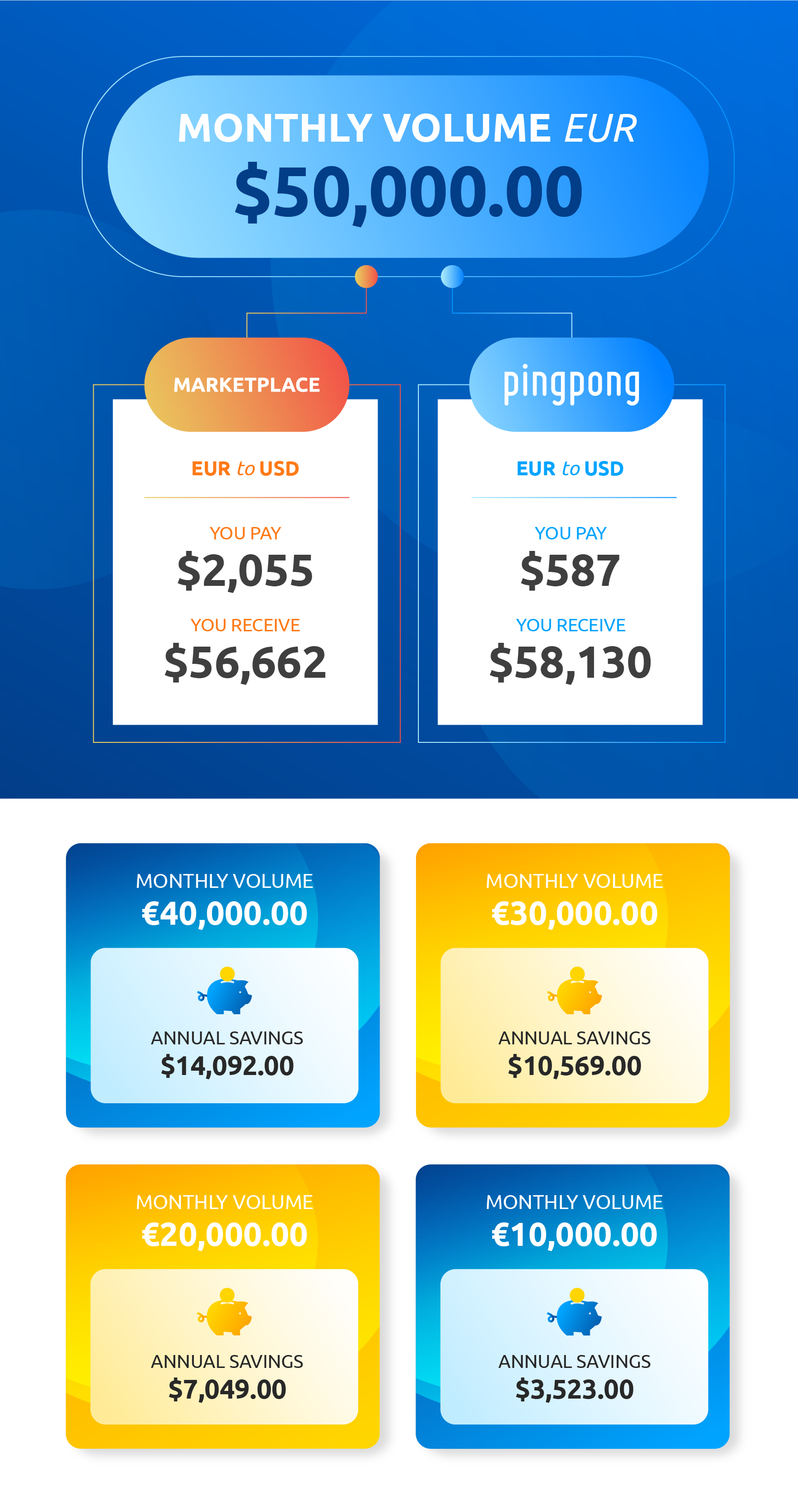
Local Taxes (VAT, GST, etc.)
Traditional marketplace models charge anywhere between 3-5% on top of the market rate to convert merchant earnings. This conversion happens behind the scenes. Money from the foreign markets where you sell – (whether Europe, United Kingdom, Japan, etc.) is paid to you in your local currency after shaving those fees off the top.
BUT
If you’re using an innovative payment partner for international eCommerce, you can shop rates.
For example, PingPong never charges its customers more than 1% for this service. That’s anywhere between a 2 – 4% savings. That might not seem like much, but imagine the savings difference when you’re paying that 1% conversion cost on $5,000, $50,000, $100,000, $250,000 – instead of 1.5% and higher! It absolutely adds up. You could save thousands of dollars monthly and annually.
2. Where To Start Your Global Expansion
Where you can expand depends on the marketplace platform you’re utilizing and what countries that platform supports.
For example, the ever-popular Amazon marketplace currently operates Amazon stores in 16 countries. However, Rakuten is more profitable than Amazon in Japan, and Newegg is a popular alternative to online shopping in Canada.
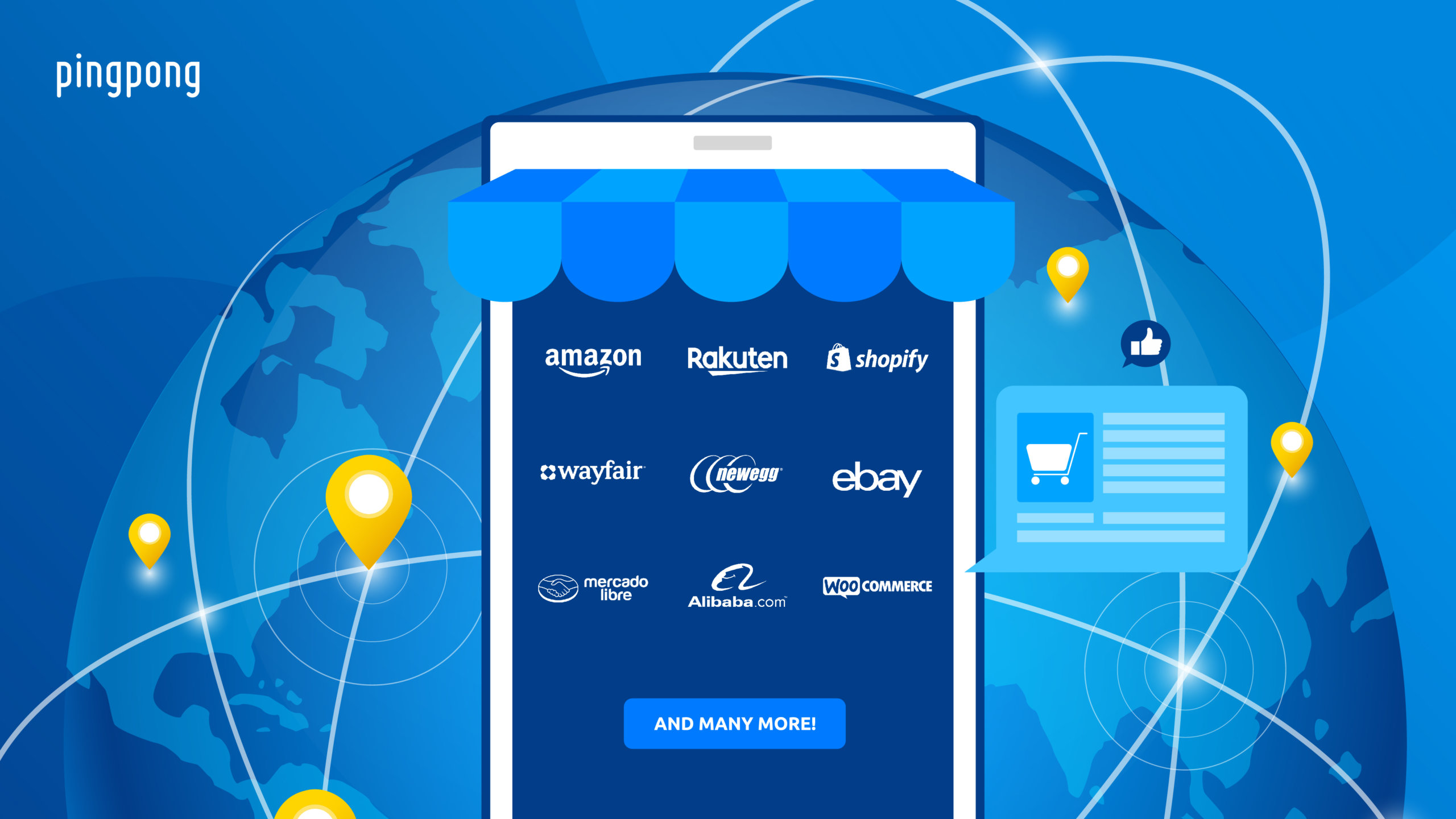
Amazon
Not like it needs an introduction, but Amazon focuses on eCommerce, and is considered one of the Big Five companies in the U.S. information technology industry. The company has been referred to as “one of the most influential economic and cultural forces in the world” as well as the world’s most valuable brands.
eBay
If you’re considering international shoppers, you should take a look at eBay. The eCommerce giant helps sellers from all over the world sell their products internationally. With a Global Shipping Program (GSP) and other DIY shipping options, eBay brings your business across borders. Plus, you get to circumvent local customs, if your item is eligible.
Newegg
Newegg is a popular platform for online selling in Canada, and it is especially known and trusted for electronic and tech products.
This e-retailer launched in 2001, centering around online shopping experiences for computer component enthusiasts. Ten years later, the company launched a marketplace platform that allows different online merchants, resellers, retailers and brands to sell products directly to its customer base.
Rakuten
This might come as a surprise, but the Rakuten marketplace is even more profitable than Amazon in Japan. It also doesn’t hurt that Japan accounts for the world’s fourth largest eCommerce economy.
Expanding internationally in Japan might be fiscally beneficial for growing your revenue while selling online.
Added bonus: Rakuten provides its customers with helpful translations services for products, listings and more. Meaning, just because you don’t speak, write or read in Japanese, doesn’t mean your online shop won’t be successful to a Japanese customer base. This is a huge advantage and definitely something to think about, as some US products are hard to obtain in Japan and are in turn, more successful in that market.
3. Cross Borders & Think Outside of Your Box
Choosing where you want to expand when selling products online and having the legal credentials to do so are two of the most vital factors to selling internationally. When you’re ready to tap into international revenue, these steps are just the tip of the iceberg. They are steps you must take, or international business can’t proceed.
An option for successfully selling internationally online that is more unique and innovative (and not required), is to expand your product offering. That is, add an additional product to your catalog that might work well in an international market.
Check out seven-figure seller Sharon Even’s strategy for selecting products that perform well.
Sure, test your top-performing product in the new market as well. It may be as equally successful. However, when you begin to cross borders, language, tax laws and currencies aren’t the only things that change.
Cultural expectations change. A product that performs really well in one country might be a bust in another. The same can be said for a product that performs really well on what marketplace. Something might sell really well on Newegg, but be a bust on Amazon.
However, when you dedicate the time, get really granular, test different products in different markets and find something that works – the profits will pay off. You’ll barely remember all the extra work it took to make that happen, and you will have learned some valuable information that can be tested in other marketplaces and countries for further international expansion.
Where Will You Go Next?
Anyone can start selling internationally at any time. It’s really never too late to get started.
In that same spirit, the sky’s the limit, especially with today’s eCommerce and online retail industry. COVID-19 has caused online purchasing and shopping sales to skyrocket. Expanding internationally is bound to reap rewards for sellers and online merchants who put in the time and research to understand a new market, have the proper credentials and a product customers around the world want to purchase.
Amazon’s Prime Day saw it’s most lucrative profit and record-setting sales in 2020. Where will you go next?
Wherever it is, keep in mind that companies and products exist to help sellers and online merchants make (and keep) the most of their profits.
If you are ready to expand internationally, want the best conversion rate when it comes time to bring your money back home and want the type of customer support that can only benefit your business, consider a PingPong account.




